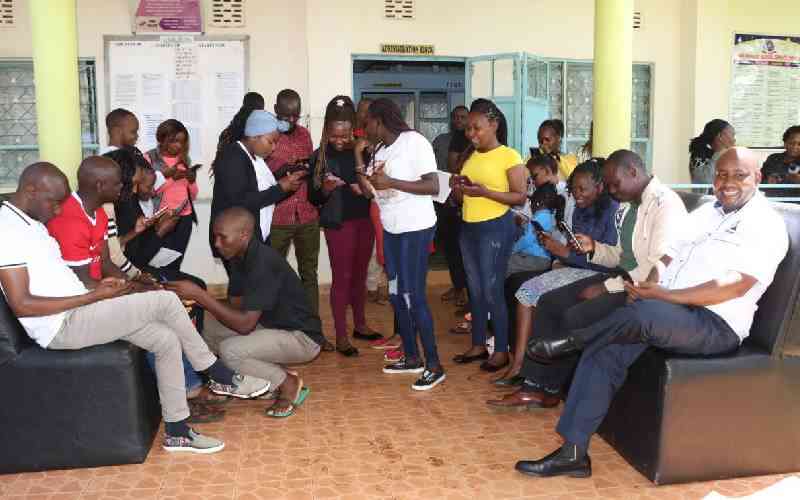×
The Standard e-Paper
Stay Informed, Even Offline

Teachers at Tenri Primary School in Embu busy on their phones to download the 2023 KCPE results. [Muriithi Mugo, Standard]
Education Cabinet Secretary Ezekiel Machogu yesterday released the 2023 Kenya Certificate of Primary Education (KCPE) examination results, marking the official end of the 8-4-4 system of education at the primary level after 39 years.